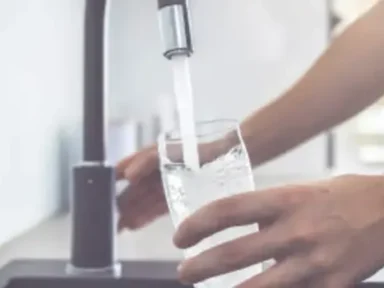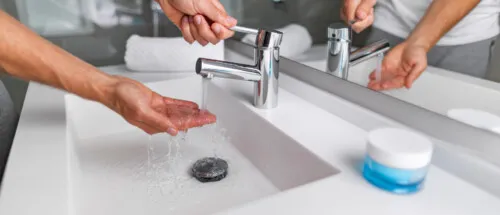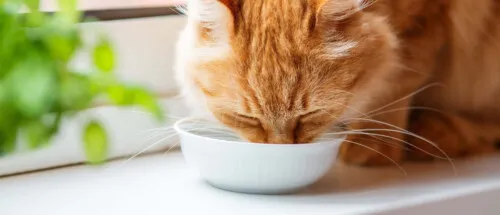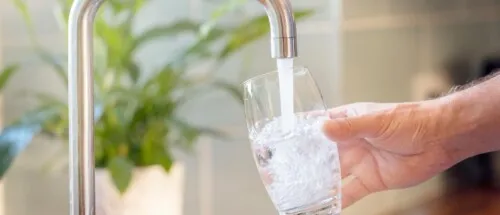You’ve probably heard of hard water, but you may not know what it is exactly. At Leaf Home Water Solutions, we are often asked, “What is hard water?” and “What are hard water problems, and how can I prevent them?”
You may notice the effects of hard water when your hands feel dirty after washing with soap and water, or you pour yourself a glass of cloudy drinking water. While hard water does not pose hazardous health risks, it can be a nuisance and affect the life of your pipes and plumbing system.
In this guide, we’ll discuss what defines hard water, what are hard water problems, and how homeowners can treat and prevent common issues.
What Is Hard Water?
Hard water is water that contains high concentrations of dissolved minerals, usually calcium and magnesium carbonates, chlorides, or sulfates. The hardness depends on the source of the water.
Water systems, such as wells, using groundwater as a source are most concerned with hard water. As water moves through soil and rocks, it dissolves small amounts of naturally occurring minerals and carries them to the groundwater supply. Water is a high solvent for calcium and magnesium. If these minerals are present in soil around the water supply, they deliver hard water to the home.
Hardness is determined by the milligrams of calcium carbonate per liter. General guidelines for water classification are: less than 60 mg/L of calcium carbonate is classified as soft, 61-120 mg/L as moderately hard, 121-180 mg/L as hard, and greater than 181 mg/L as very hard. The hardness of water varies throughout the United States.
Is Hard Water Safe To Drink?
Hard water doesn’t pose a danger to your health. Drinking hard water can even provide health benefits. The human body needs nutrients to stay healthy. Drinking hard water can aid in meeting your recommended daily dietary needs of calcium and magnesium. Additionally, there is early evidence showing hard water may provide benefits that promote cardiovascular health.
While hard water problems may not cause substantial health risks, it can cause issues with your skin and hair and negatively affect your household.
6 Negative Effects of Hard Water
1. Irritated Skin
Bathing with soap in hot water can leave a sticky film on your skin after washing. This sticky soap scum is caused when certain ingredients in soap react with the calcium in the water. The soap scum may prevent bacteria from being removed and leave skin irritated and instigate dry skin problems such as eczema.
2. Damaged Hair
Bathing in hard water can strip moisture from your skin and hair. Excess calcium and magnesium don’t allow the water to nourish your hair, so your hair becomes dull, brittle, and difficult to manage.
3. Scale Buildup on Fixtures and Appliances
Mineral deposits may begin to show on your faucets and showerheads, as well as appliances such as coffee pot and the dishwater. Over time, this build-up can give a foul taste to your drinking water.
4. Faded Clothes
Similar to body soap, laundry detergent can become inactivated when reacting to the calcium in hot water. Repeated washing in hard water can break down clothing fabric and fade colors. You will need more detergent to clean your clothes with hard water.
5. Stained Sink and Tub
If you notice stains in your sinks and tubs, you most likely have hard water. The mineral buildup may begin to leave hard water stains your kitchen and bathroom fixtures. While this is easy to clean, wiping down your tub and shower every day becomes annoying fast.
6. Frequent Plumbing Repairs
Long-term hard water usage can cause scale buildup in your pipes. This build-up leads to clogging, which can cause corrosion and other pipe issues. Plus, the clogged pipes will slow down water flow and lower water pressure, leading to frequent pipe repairs and drainage.
Treat and Prevent Hard Water Problems
By taking proactive steps to prevent and treat hard water, you can minimize the adverse effects of hard water on your life and household. Below are three options to consider:
- Clean with Vinegar: The acidity of vinegar can help lower pH levels and neutralize the calcium content of hard water. Since no one wants the taste of vinegar in their drinking water, this is a better option for cleaning. Soak fixtures in distilled white vinegar or spray appliances and surfaces with vinegar to remove the hard water scum.
- Install a Faucet Water Softener: An easy and convenient way to treat hard water is to install a water softener. Keep the cost of a water softener low by installing a compact faucet or under-sink softener.
- Install a Whole House Water Softening System: A whole house water softening system will treat hard water at the main water supply. These systems require a bigger investment but are worth it since they give you soft water in every water outlet throughout your home.
Treating hard water and choosing a water softening solution can be a difficult decision. Multiple factors come into play, including your water source, family needs, and budget. At Leaf Home Water Solutions, we provide complimentary in-home water testing and expert, professional advice, so you get the best water solution for your home.



